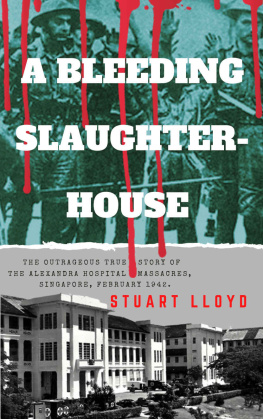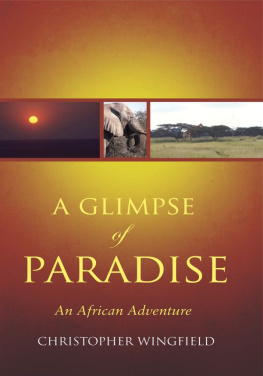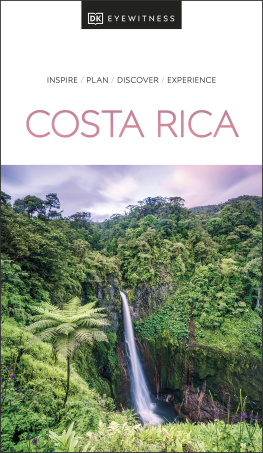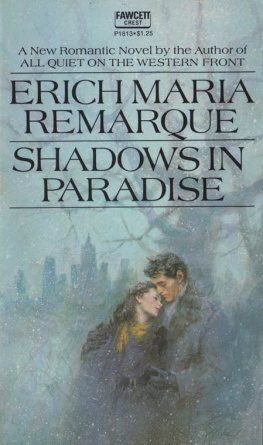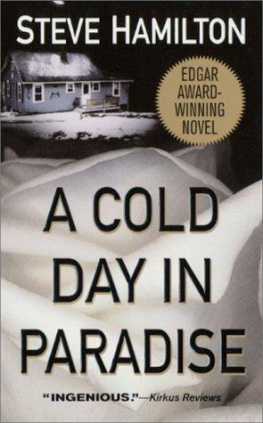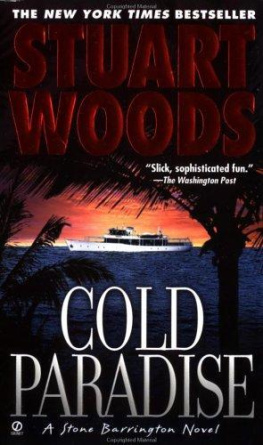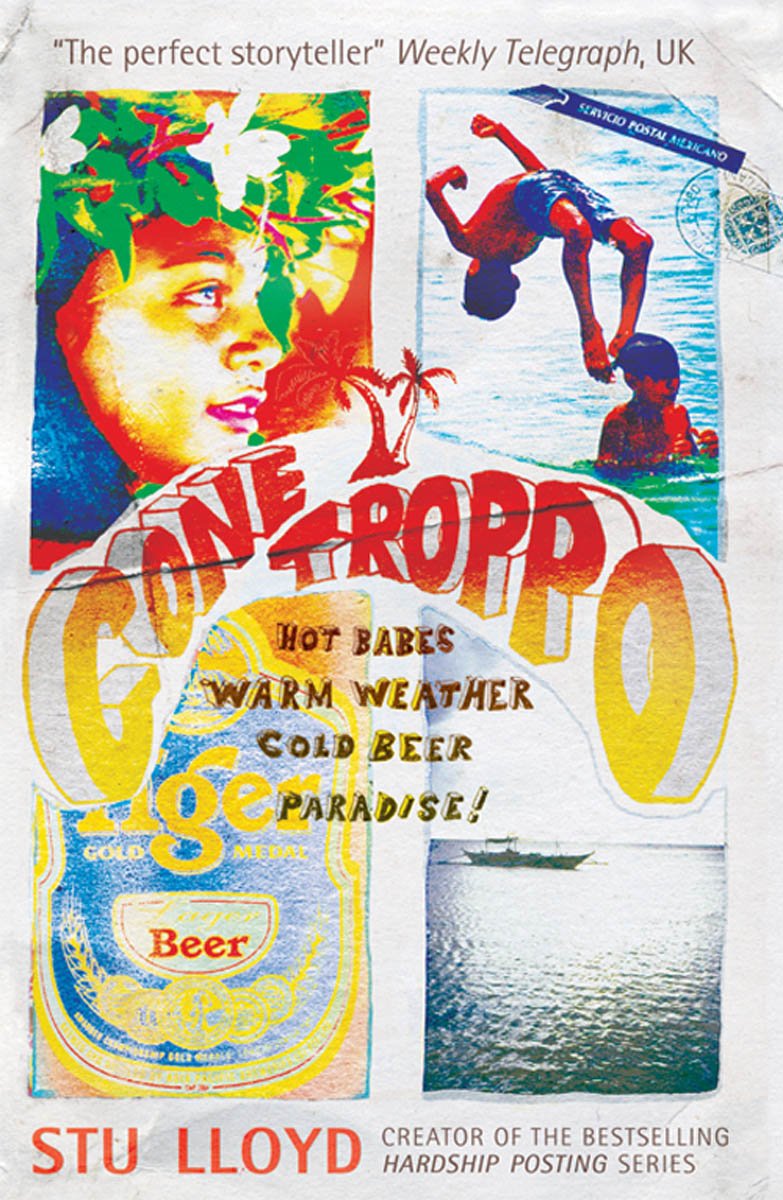
Contents
Preface
I am solar powered; I guess I always have been. Possibly something to do with being born in the highlands of Africa, recalling the searing heat on my back that drilled its way into my bones, leaving me infected for life. Like the bite of a tse-tse fly. I do enjoy the change of seasons, appreciate the beauty of orange-brown autumnal leaves,
nursing a tot of brandy in front of a crackling fire on a chilly winters night, and the vernal rejuvenation of spring. But nothing stirs my blood, my passion for living, like sunshine. If its twelve hours a day, every day, all the better. Sweaty in all the wrong places? Now Im alive (if a little anti-social).
I feed off the energy of those around me. This may sound paradoxical given the malaise often associated with the tropics. But theres frequently a spontaneous radiance, exuberance and casualness to life in the tropics that is not, and cannot be, replicated elsewhere. Carefree passion. In the art, in the music, in the smiles of contentment no matter how shoddy the surroundings. In fact, sometimes inversely related to the perceived quality of life.
From the very first time I heard Good Vibrations as a young boy, the Hawaii-via-California stylings of Brian Wilson and The Beach Boys spoke to me, even though it was music from a culture half way across the world, a country Id never been to. (Trivia snippet: I was actually conceived at U.C. Davis in California in the Sixties, man.) Brian Wilsons new recordings are still eagerly awaited in the Lloyd house, and an ultra-kitsch hula dancer sways erratically on the dashboard of my car. In the heaviest of big-city jams, one glance at her transports me to a better place.
My concept of the idyllic world was fuelled by Gauguins renderings of Tahiti: lush vegetation, fruit trees giving up an abundance of fresh produce, the happy twitter of birds, the twinkling flow of a crystalline stream, the gentle crash of the surf, andmy imagination tells methe unselfconscious giggles of dusky maidens unaffected by politics and unpolluted by modernity. A certain naivet appealing to my inner Noble Savage, perhaps? Avidly I inhaled the splendid purity of light; indeed I was a new man, wrote Gauguin of his reaction to the tropics. A couple of imitation Gauguins (knocked up for a few bucks by a whisky-addled artist in Koh Samui, Thailand) adorn our walls at home. But pride of place above the mantel piece belongs to a Ray Crooke painting, Interior with Two Figures, featuring a couple of Fijian girls chatting in the shade, while the turquoise waters lap against the white heat of the glistening sands outside their bure hut. Most writing days start with me staring at that wonderfully evocative work and disappearing into the canvas.
The best job for a writer, a job with the fewest hours is in the tropics, wrote Paul Theroux in To the Ends of The Earth. That immediately caught my attention. But books are hard to write in the tropics. It is not only the heat; it is the lack of privacy, the open windows, the noise. Tropical cities are deafening. Still it didnt seem to impede the likes of Sir Thomas More, James A. Michener and James Hilton from conjuring up their fictive visions of Utopia, Bali Hai and Shangri-La, respectively; although it must be acknowledged that they were beaten to it by the Hindu and Buddhist concept of Nirvana, and the ancient Greeks notions of Arcadia and the Elysian Fields. The Greeks hailed Helios as the all-seeing, all-knowing Sun God who raced his chariot across the heavens each day. The Egyptians placed Ra, their Sun God, on the highest pedestal possible as creator of all. Half a world away, the Aztecs, too, installed their Sun God, Huitzilopochtli, as the central figure in their universe. So sun worshipping, in its many forms, is no new-fangled pursuit.
Because of some deep urge, constant throughout history, troubled men traditionally dream of islands, wrote Michener in Rascals in Paradise, possibly because the smallness of an island invited the illusion that here the complexities of continental societies can be avoided, or at least controlled. This is a permanent, world-wide dream. On the same escapist theme, Samuel Taylor Coleridge posited this little gem: If a man could pass through Paradise in a dream, and have a flower presented to him as a pledge that his soul had really been there, and if he found that flower in his hand when he awokeAye, and what then?
Call me a dreamer. (Many, including my bank manager, do.) But Ive never been afraid of the space between my dreams and my reality, and I do believe Paradise exists. Or can exist. Somewhere. It might be just over the horizon. After all, a Google search for Paradise results in some 21,900,000 hits, thereby making it perhaps the most over-usedor certainly erroneously deployedword in the world.
Yet Paradise is different things to different people. A correspondent of mine, a nuclear scientist on Cold War-era submarines, described the simple opening of the hatch after several months submersion tracking enemy subs as Paradise. (Refried beans on the menu were never a good idea!) To prisoners of war on the Thai-Burma Railway, their return to Changi Gaolusually a byword for atrocitywas likened to returning to a Paradise of plenty. And to Muslim fundamentalists Paradise is the seventy-two virgins who supposedly await them as full and final payment for their martyrdom.
However, Im also jaded and cynical enough to realise that perhaps no one place is singularly utopian. Like the tears of a clown, theres always another more complex, moody and brewing side. The brighter the sun the darker the shade, perhaps?
I am fatally attracted to that bittersweet notion. The ambiguous and vacillating juxtaposition just makes it even more alluring. As does its very elusiveness. Another day in Paradise can be exclaimed with heartfelt gratitude that everything is just perfect, or with sarcastic resignation as the world goes to hell in a hand-crafted wicker basket around you. Harold Stephens, who sailed his yacht over 200,000 kilometres through the South Pacific, recently told me: Paradise can kill you. In his case it was a realisation that there are only so many rum punches a kidney can process in a lifetime. The Boxing Day Tsunami (which occurred as I was writing this, devastating people and places I know well) is ample proof that Paradise can indeed turn around and bite you on the bum. Tropical and Paradise are not inextricably intertwined synonyms.
In 1787, a sanguine Don Carlos wrote: One moment in Paradise is not too dearly paid for with ones life. Not that I was deliberately seeking to put my life on the line in the course of this quest. Nor do I pretend that this is an exhaustive survey of all known tropical Paradises. Time, money and my wife simply didnt permit that. And its not a Most Pristine Beaches in the World contest: otherwise I wouldve simply written a book on the Maldives, where all the physical clichs of tropical Paradise are so perfectly and abundantly present.
So how did I choose which destinations to go troppo in? Let me share this scientific secret of selection with you a world map and a set of cheap plastic-feathered darts. Due to my lack of practice, some darts fell into the ocean a long way from the nearest land mass. Berne in Switzerland was a little off the mark. Unfortunately none landed in Brazildamn, damn, damn! (Maybe scope for a sequel, dear publisher?) One pierced New Delhi, eons from the nearest beach, but I gave it the benefit of the doubt as it was always what they of the gin-soaked Raj seemed to refer to as the Tropics.


